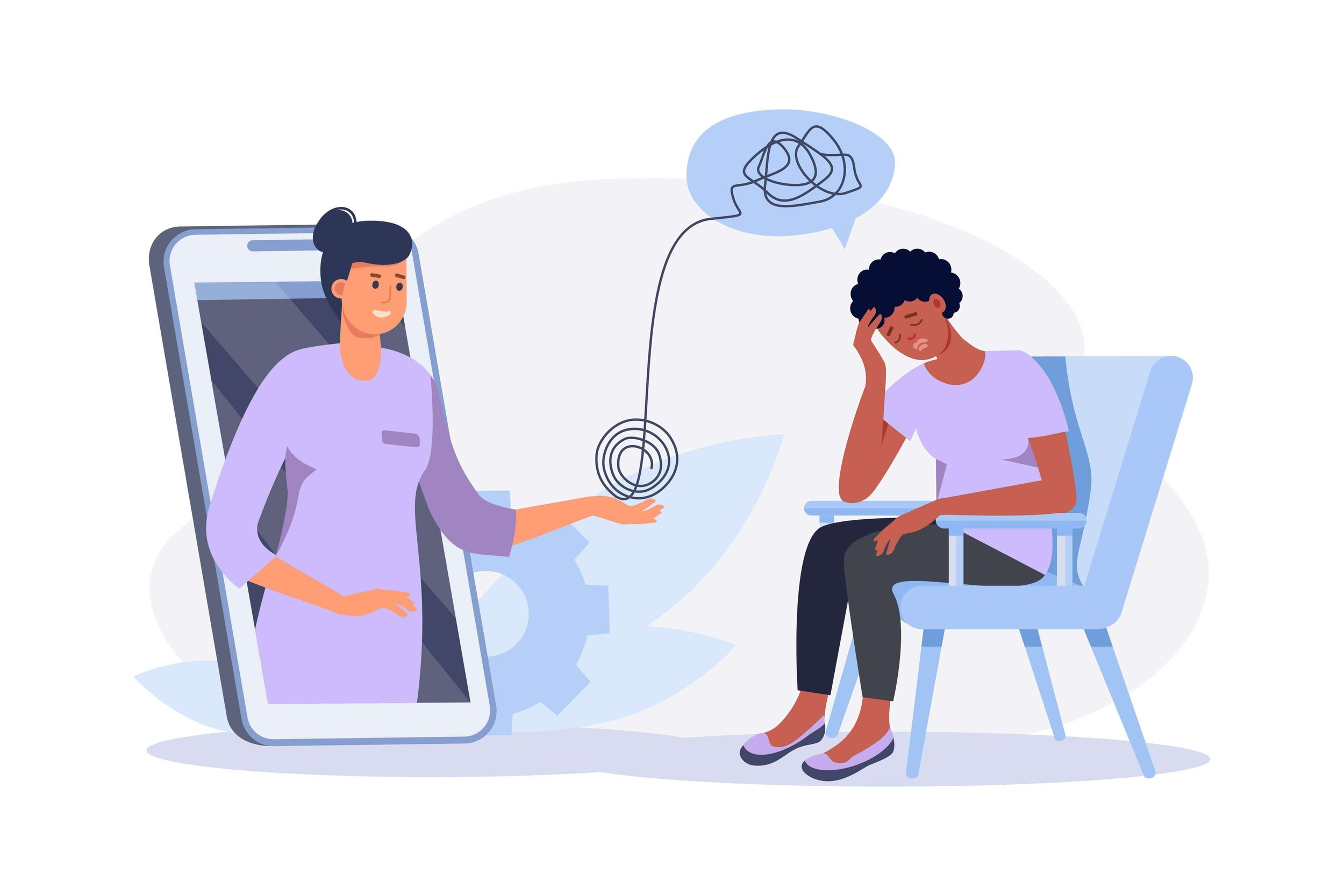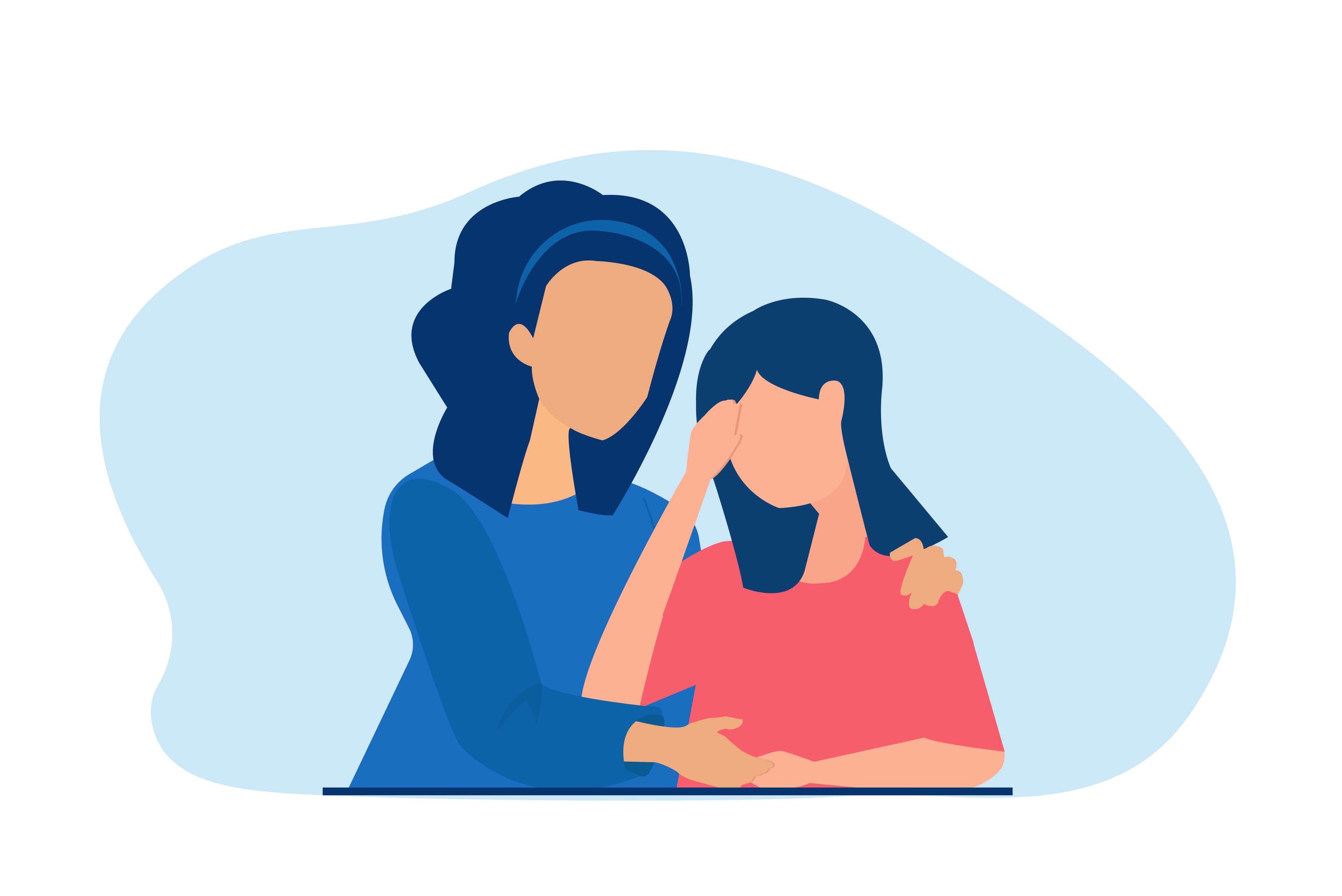
Anxiety Counseling Spokane, WA
Here at Mindful, we offer anxiety counseling services in Spokane, WA that utilize evidence-based techniques to help individuals manage and overcome their anxiety.
Online Anxiety Counseling Spokane, WA
Are you feeling anxious about various aspects in your life? If so, you’re not alone. Many people experience anxiety throughout their lives. Anxiety is a common mental health issue that can interfere with daily life and prevent individuals from reaching their full potential. The good news is that Mindful provides the anxiety counseling Spokane, WA residents are looking for.
The experienced counselors here at Mindful will work with you to understand the underlying causes of your anxiety and develop strategies to manage your symptoms. Through a combination of talk therapy, cognitive-behavioral techniques, and mindfulness practices, patients can learn to navigate their anxiety and lead a more fulfilling life. If you are experiencing anxiety, we are here to provide the support and guidance you need.
What Is Anxiety?
The American Psychological Association defines anxiety as a mix of emotional factors (tension and worried thoughts) and physical factors (like increased blood pressure). Anxiety typically focuses on a nebulous future threat, such as getting sick and becoming unable to provide for yourself, instead of an immediate problem.
Occasional anxiety is normal in humans. If you’re expecting to lose a job for example, some emotional concern over that is natural. Persistent anxiety may be a symptom of a different problem.
How Anxiety Affects You
Anxiety affects your body in many ways. Most people experience one of the common anxiety disorders (which we’ll discuss in a moment), which can impact your body. Otherwise, common symptoms of anxiety include things like:
Difficulty concentrating on tasks
Sleep problems
Irritation
Persistent feelings of worry
Common Anxiety Disorders
Here are some of the most common anxiety disorders.
Generalized Anxiety Disorder
Generalized anxiety disorder is a persistent feeling of anxiety that can interfere with regular life but doesn’t have a clear cause. Generalized anxiety disorder can last for months or years at a time. People who think their life is good, but are still stressed and anxious about things, could be experiencing this.
Panic Disorder
Panic disorder involves frequent and unexplained panic attacks. Most people experience the occasional panic attack for no discernible reason, which some think is our body’s way of testing things to ensure they’re working. However, frequent panic attacks usually have a different cause.
Social Anxiety Disorder
Social anxiety disorder is an overwhelming fear of interacting with other people. Social anxiety disorder can make it impossible to finish basic life tasks like work or education. People with a social anxiety disorder may experience stomach aches when around others, have difficulty making eye contact, or have intense feelings of self-consciousness.
Phobia Disorders
Phobias are intense aversions to specific situations or items, usually out of proportion to any threat those things may pose. A phobia can cause constant anxiety or stress due to the fear of encountering it in otherwise-normal situations.
For example, many people will do anything to avoid public speaking, even if they’re fine in one-on-one conversations. Some people’s fear of speaking is so strong that they avoid any job where they may be asked to give a presentation during a meeting, which can slow down their career.
Separation Anxiety Disorder
Separation anxiety is a severe concern about being separated from people. People with this may have difficulty being in a different room than anyone they’re attached to, as well as persistent nightmares about the loss.
For a real-world example of this, many dogs experience separation anxiety when their human family members are gone. This is why some people suggest owning at least two dogs at a time, as having company can significantly reduce the stress and anxiety they experience.
Selective Mutism
Selective mutism isn’t strictly an anxiety disorder, but it can show up in people who have them. In summary, selective mutism is when people don’t speak in social situations even though they have normal language skills. For example, someone with panic disorder and selective mutism may be unable to talk while having a panic attack.
What If You Don’t Treat Your Anxiety?
Treating anxiety is important. Potential consequences of untreated anxiety include disabilities, reduced ability to work, and an increased risk of suicide. Anxiety is often persistent until you can find and address the root cause of it, and even emotionally durable people can find themselves faltering under the weight of months or years of constant stress.
How Anxiety Counseling Can Help
Searching for “anxiety counseling near me” is a great first step toward getting the help that counseling can provide. Counseling is a personalized approach where a trained expert will talk with you about what you’re experiencing and help identify the best way to approach it.
Anxiety has many possible causes, from hormonal imbalances to genetic conditions. Some people are predisposed to anxiety from birth.
Many people find that cognitive-behavioral therapy is effective for treating their anxiety. In this process, you can learn to understand how thoughts contribute to anxiety and when you can deliberately try to think of something else to reduce the impact of anxiety on your life. You may also learn specific behavioral techniques to eliminate a particular fear.
Another approach is called group psychotherapy. As the name suggests, this involves bringing several people with anxiety together. Group care can help you understand that you’re not alone, and seeing other people working to overcome their anxiety can be very motivating.
Family psychotherapy can be helpful when a whole family is dealing with the effects of anxiety. Children and adolescents often benefit from this, especially when they have a chance to try and explain their feelings in ways they haven’t been able to before.
Most anxiety disorders are treatable through some combination of counseling, therapy, and medication. Our experts have the training and knowledge to accurately identify your specific needs and create a customized plan to help you.
Who Counseling Is For
Anxiety counseling is for everyone. Many therapists who work in this area specialize in dealing with anxiety and have more training and techniques than general care providers. Counseling is available through a wide range of healthcare plans and providers, including for people with limited incomes.
Depending on your situation, you may even be able to attend therapy sessions through video conferencing rather than having to visit an office. The anxiety counseling Spokane, WA residents are looking for is just a few clicks away.

Get started now
Getting started with Mindful is an easy to follow three-step process.
Take Control Of Your Anxiety Today
If left untreated, anxiety can have a significant impact on one's mental, emotional, and physical well-being, but with the right support and tools, it is possible to manage and overcome this condition. Seeking help from a professional anxiety counselor can be a crucial step towards improving your quality of life.
Anxiety is a real issue, and you can’t solve it just by toughing it out or waiting for it to vanish. Fortunately, Mindful is here to provide you with the tools and strategies you need to overcome your anxiety and set your life on a better path.
If you reside in the Spokane, WA area and struggling with anxiety, the team here at Mindful is ready to provide you with compassionate and effective counseling services. We offer virtual counseling sessions that can be accessed from the comfort of your home, making it easy to prioritize your mental health.
If you or someone you know is struggling with anxiety, take action today and contact our team to schedule an appointment and begin your journey towards healing and wellness. Do not hesitate to reach out and take the first step towards a happier, healthier life you deserve.
FAQs
-
Yes, counseling can be one of the most effective methods of treating anxiety. Counseling, also known as talk therapy or psychotherapy, is a form of treatment where a trained therapist helps an individual identify and address their anxiety symptoms, as well as the underlying causes of their anxiety.
Research has shown that counseling can be an effective treatment for anxiety, particularly when combined with other interventions such as medication or lifestyle changes. It is important to note that the effectiveness of counseling may vary depending on the individual's specific symptoms and needs, as well as the therapist's approach and experience.
If you are struggling with anxiety, it is important to seek help from a qualified mental health professional who can help you find the best treatment options for your individual needs.
-
Yes, ignoring anxiety can often make it worse. Anxiety can be a normal response to stress or danger, but if left unchecked, it can become a chronic and debilitating condition that negatively affects a person's mental and physical health.
When someone ignores their anxiety, they may avoid situations or activities that trigger their anxiety symptoms. However, avoidance can reinforce the anxiety by sending the message that the feared situation or activity is dangerous and needs to be avoided. This can lead to a cycle of avoidance and increased anxiety.
Ignoring anxiety can also prevent someone from getting the help and support they need to manage their symptoms. It can be difficult to seek help for anxiety, but working with a mental health professional can provide individuals with tools and strategies to manage their anxiety and improve their overall well-being.
Furthermore, anxiety can have physical effects on the body, such as increased heart rate, muscle tension, and shallow breathing. Ignoring these symptoms can lead to further physical and emotional distress, as well as long-term health consequences.
-
There is no one single cause of anxiety, as it can be triggered by a combination of factors, including genetic, environmental, and psychological factors. However, some common factors that may contribute to anxiety include:
Stress: Stressful events or situations, such as work or school pressures, financial difficulties, or relationship problems, can trigger or worsen anxiety.
Trauma: Experiencing or witnessing a traumatic event, such as abuse, violence, or a natural disaster, can increase the risk of developing anxiety.
Genetics: Anxiety can run in families, suggesting that there may be a genetic component to the condition.
Brain chemistry: Changes in the brain's chemical balance, including imbalances in serotonin and other neurotransmitters, have been linked to anxiety.
Medical conditions: Certain medical conditions, such as thyroid disorders, heart disease, and chronic pain, can increase the risk of anxiety.
Substance use: Drug and alcohol use can trigger or worsen anxiety symptoms.
It's important to note that everyone is different, and what may trigger anxiety in one person may not affect another person in the same way. Understanding the specific factors that contribute to your anxiety can help you identify effective strategies for managing your symptoms.
-
Anxiety can present itself in different ways and symptoms can vary from person to person. However, some common warning signs of anxiety may include:
Excessive worry or fear: Feeling constantly worried or afraid, even about everyday activities or events.
Physical symptoms: Physical symptoms can include rapid heartbeat, sweating, trembling, shortness of breath, and muscle tension.
Avoidance behavior: Avoiding certain situations or activities that may trigger anxiety, which can lead to social isolation and decreased quality of life.
Difficulty concentrating: Anxiety can interfere with the ability to focus and concentrate on tasks, which can impact performance at work or school.
It's important to note that anxiety can also cause other symptoms, such as irritability, sleep disturbances, and digestive problems. If you are experiencing symptoms of anxiety that are impacting your daily life, it's important to seek help from a mental health professional who can provide you with the support and resources you need to manage your symptoms and improve your overall well-being.


